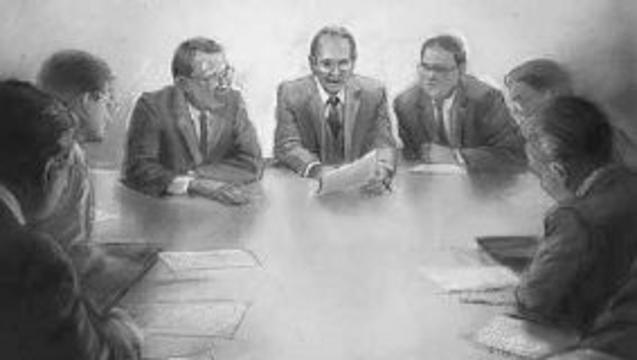Question
Gramps,
My uncle recently received a letter from his bishop calling him to repent to appear in a bishop’s court for disciplinary actions. He was having an affair, he was married in the temple to his wife, but because of the affair, they separated for now. The bishops cousin is the affair partners neighbor and she tells him all the gossip. He wasn’t strong in the church, member 5 yrs. He had not been active, and was not super converted to the church. Can they just call him in without him coming forward?
Jessica
Answer
Hello Jessica,
Thank you for taking a moment to ask this important question. As I do not know the whole story you are sharing, and I am probably receiving a glimpse of what has transpired between the bishop, your uncle, and all others involved I will answer according to what I know; however, this is a great question to take to your bishop or stake president also.
I would like to first address the subject provided for this question — Court of Love. A disciplinary council ideally is a court of love. We have been taught in scripture the following,
“Verily, thus saith the Lord unto you whom I love, and whom I love I also chasten that their sins may be forgiven, for with the chastisement I prepare a way for their deliverance in all things out of temptation, and I have loved you—” D&C 95:1
Ideally, these meetings should be a court of love where love is extended; however, this doesn’t mean the outcome will be something everyone is pleased with. The Lord has called imperfect men and women to specific tasks within his Church. Even when doing our best to do as the Lord has commanded, we can expect at some point our passions get the better of us. As mentioned in my opening paragraph I do not know anything about this circumstance save what you have shared. Now, to answer your primary question, “Can they just call him in without him coming forward?”
The simple answer is “yes.” A bishop and stake president, depending on the unique circumstance, have the authority and responsibility to compel a person to come; although, this is not the preferred method. Take for instance this scripture,
“And now, because ye are compelled to be humble blessed are ye; for a man sometimes, if he is compelled to be humble, seeketh repentance; and now surely, whosoever repenteth shall find mercy; and he that findeth mercy and endureth to the end the same shall be saved.” (Alma 32:13)
Every bishop and stake president would rather have someone come in according to their free will and choice. This is not always the case though, and there are divers scenarios that may require a bishop or stake president to compel someone to come into a disciplinary council. A bishop or stake president may require the testimony, the witness, or confirmation from an individual regarding a different witness from a person the bishop or stake president just met with.
I am not aware of all the parameters or protocols that are outlined in The Church Handbook. It has been a while since I have read this book of instruction from the Church. This is not the place to be quoting from The Church Handbook of Instructions Book 1, and is also why this is a great question to ask your bishop or stake president. One scenario I am aware of is when a person comes into the bishops office, or stake presidents office and confesses a serious sin. If this sin involves another member the logical and rational step would be for the stake president or bishop to confirm through witness from the other party involved. They will send a letter to come in. If the person doesn’t respond back, then the letter may become more compelling especially if the “law of witnesses” is confirmed (multiple people who have been asked to come and visit have given testimony or witness confirming the serious transgression).
Let’s review the serious sin of adultery as you have specified. If person A (the woman) comes to the bishop or stake president and confesses this sin. The logical step would be to reach out to the other party through letter, if not able to be reached by phone, to come in and either confirm or deny the witness of adultery they were apart of. If these attempts to know more are ignored and other witnesses are able to confirm such, then person B (the man) may receive a more compulsory letter telling them to come in.
My recommendation is to reach out to your bishop and stake president if something like this continues to bother you. Allow them to explain what they can without going into anything confidential (which is none of our business any way).
Gramps







